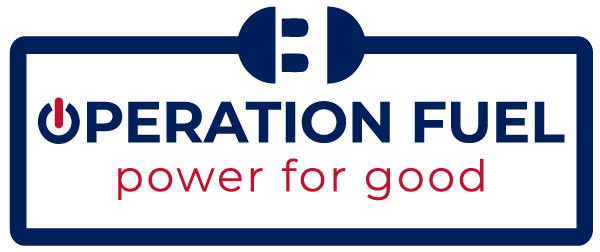Testimony from Operation Fuel Policy & Public Affairs Director Gannon Long, March 2022.
Chairs Lesser and Wood, Ranking Members Hwang and Pavalock-D’Amato, and Honorable Committee members,
Thank you for hearing our public testimony today. Operation Fuel stands in support of SB 14 AAC Home Energy Affordability for Home Buyers, and we ask you to favorably pass this bill through the committee.
Operation Fuel serves clients in every legislative district of the state who struggle to keep up with rising electricity, heat, and water costs in our state. We also engage in energy efficiency policy,
through the Energy Efficiency Board, and by partnering with CT Green Building Council, Neighborhood Housing Services, and the CT Green Bank. We held a successful energy efficiency and water efficiency conference in October 2021, bringing together practitioners, advocates, and policy makers, to learn about and promote energy efficiency efforts in CT. Our new program, Better Homes & Buildings, connects homeowners to hazard remediation, weatherization, and efficiency services and incentives that individual clients struggle to access on their own. Operation Fuel was also a participant in PURA’s Energy Affordability Docket 17-12-03RE01, addressing hardship protections for low-income ratepayers, as this is a core issue for our clients. Operation Fuel is on the Low-Income Energy Advisory Board, which develops the state’s LIHEAP spending plan each year. We contributed to the Green Bank and VEIC’s 2020 report “Mapping Household Energy & Transportation Affordability in CT,” which outlines unaffordable transportation, housing, and energy costs throughout the state of CT. In particular low-income census tracts, energy costs are as high as 20% of residents’ incomes, compared to 6% that is the standard budgeting. In one community in Bridgeport, we found that the combined costs of these 3 basic needs amounts to 68% of median income; the ideal limit would be 45%. In our experience, these costs have only increased since the study was published, as the pandemic has exacerbated the income inequality
that CT is most famous for.
The committee members may be familiar with the Energize CT website, which helps consumers estimate their energy costs and use by inputting the size and permeability of the home, fuel source,
preferred temperature, and other data. These data are not as precise as HERS scores but are a good tool to start with. Additionally, our partners at Green Building Council note that there is a very small number of CT firms that provide energy score services today. We encourage the committee to work with DEEP, the Energy Efficiency Board, and other legislative leaders to invest in our energy efficiency workforce. These are good-paying jobs that must be done right here in CT. We note the bipartisan support for workforce investment in our state, and encourage the inclusion of energy efficiency as a key industry that will lower costs, reduce emissions, and create wealth in our state.
We do have a few notes on the current bill language for the committee’s consideration. Reading Lines 19-20, we agree that the DEEP commissioner should be flexible when determining the best
methods to examine and disclose energy use ratings in homes. However, we caution against CT developing our own system that is “specific to the state.” We are a small state and the energy rating
industry is growing quickly in our region. We should not reinvent the wheel with our own administrative system and language when many good resources currently exist, that are easily translated to more universal systems. We need a system that is easily understood by people outside CT so that we can recruit more businesses to do this work in CT. SB 14 incentivizes property owners to reduce energy costs and emissions from their homes, by requiring disclosure of energy use upon time of sale. There are appropriate carve outs. However we question the exclusion of new homes from this bill in Lines 39-40; residential properties constructed or sold after January 1, 2000 can still depend on inefficient energy sources or construction. We believe these newer homes should also be included in the bill.
As a state, we have a lot of work to do to bring down energy burden for our residents, especially the most vulnerable ratepayers. There are a series of legislative, regulatory, and market forces that
continue increasing CT residents’ energy costs. Operation Fuel does not see one quick solution or gesture that will solve this multi-pronged challenge. But, we can take specific actions that begin
rebalancing the burdens. SB 14 is an important step in this direction, and we ask you to support the bill.
Thank you for your consideration.
